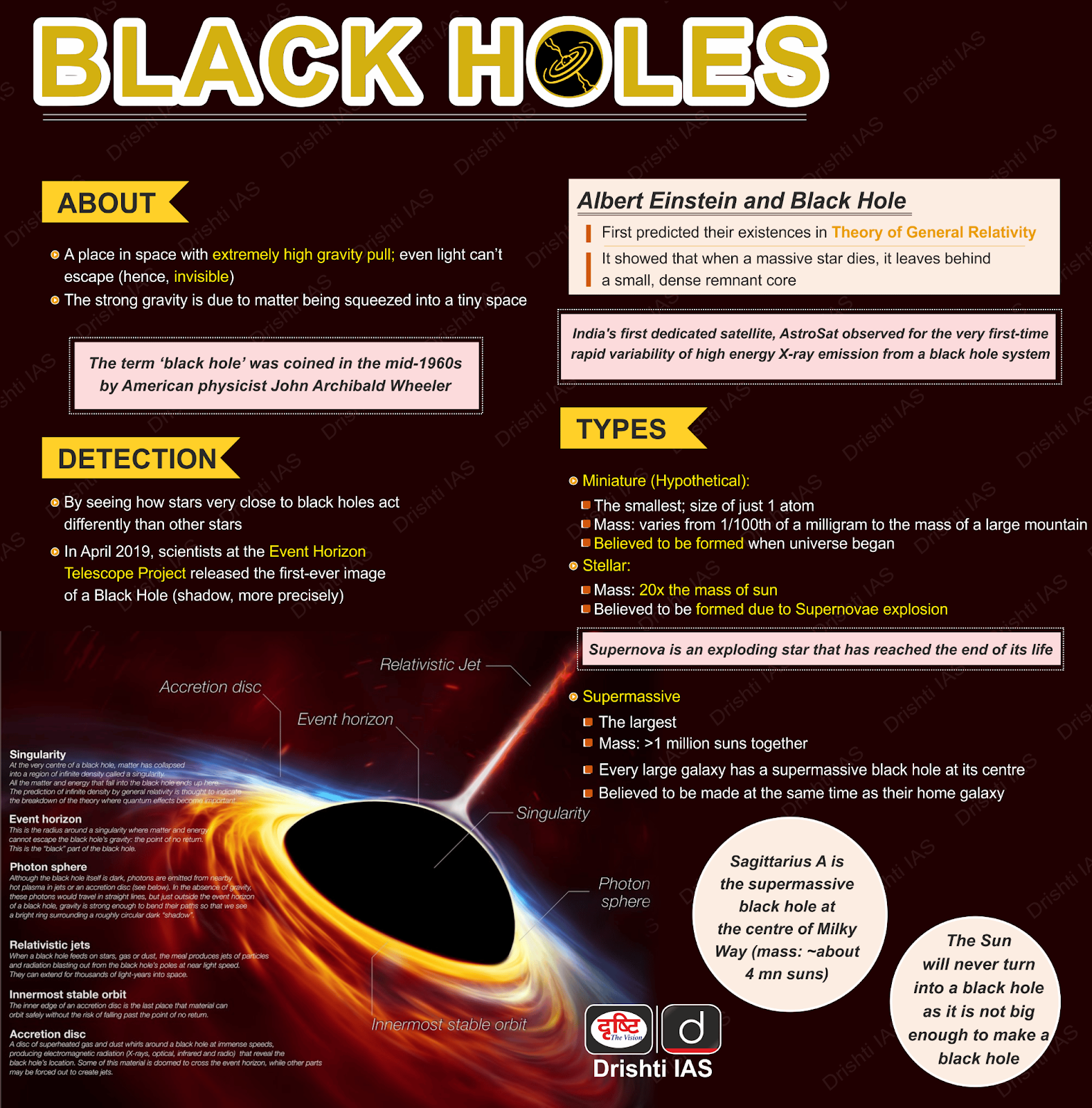Important Facts For Prelims
Black Holes and Quantum Mechanics
- 27 Jul 2023
- 3 min read
Why in News?
Recently, research conducted by a team of scientists from S.N. Bose National Centre for Basic Sciences, an autonomous institute of the Department of Science and Technology, has delved into the intriguing realm of black holes and their interaction with quantum mechanics.
- This exploration holds the potential to provide valuable insights into the unification of two significant scientific theories: quantum mechanics and the general theory of relativity, propounded by Einstein.
- The study focuses on atoms freely falling into a black hole and the novel quantum effects on the radiation emitted in this process.
Note:
- General Theory of Relativity: Albert Einstein's theory explains how objects move around massive ones. A fundamental consequence of the general theory of relativity is the existence of a black hole.
- Quantum Theory: The study of tiny particles' behavior, like atoms, at the smallest level.
- Einstein's Principle of Equivalence: The idea that nature's laws are the same in a small region with gravity as without it.
- Hawking Radiation: It is a theoretical concept proposed by Stephen Hawking, which suggests that black holes can emit radiation due to quantum effects near the event horizon known as Hawking radiation.
What are the Key Highlights of Study?
- Radiation from atoms falling into black holes exhibits similarities to Hawking radiation.
- The investigation reveals that the radiation is generated from two-level atoms, unlike the radiation emitted by black holes as predicted by Hawking.
- The study introduces the concept of "horizon brightened acceleration radiation entropy" (HBAR entropy) to quantify the amount of disorder in the emitted radiation.
- The HBAR entropy follows the area law with logarithmic leading order area corrections and inverse order of area subleading corrections.
- The findings uphold Einstein's Principle of Equivalence in a general setting, providing valuable insights into the interplay of quantum mechanics and general relativity in black hole scenarios.
- The study adds to our understanding of the mysterious world of quantum effects in black holes.
UPSC Civil Services Examination, Previous Year Question (PYQ)
Q. Consider the following phenomena: (2018)
- Light is affected by gravity.
- The Universe is constantly expanding.
- Matter warps its surrounding space-time.
Which of the above is/are the prediction/predictions of Albert Einstein’s General Theory of Relativity, often discussed in media?
(a) 1 and 2 only
(b) 3 only
(c) 1 and 3 only
(d) 1, 2 and 3
Ans: (d)







